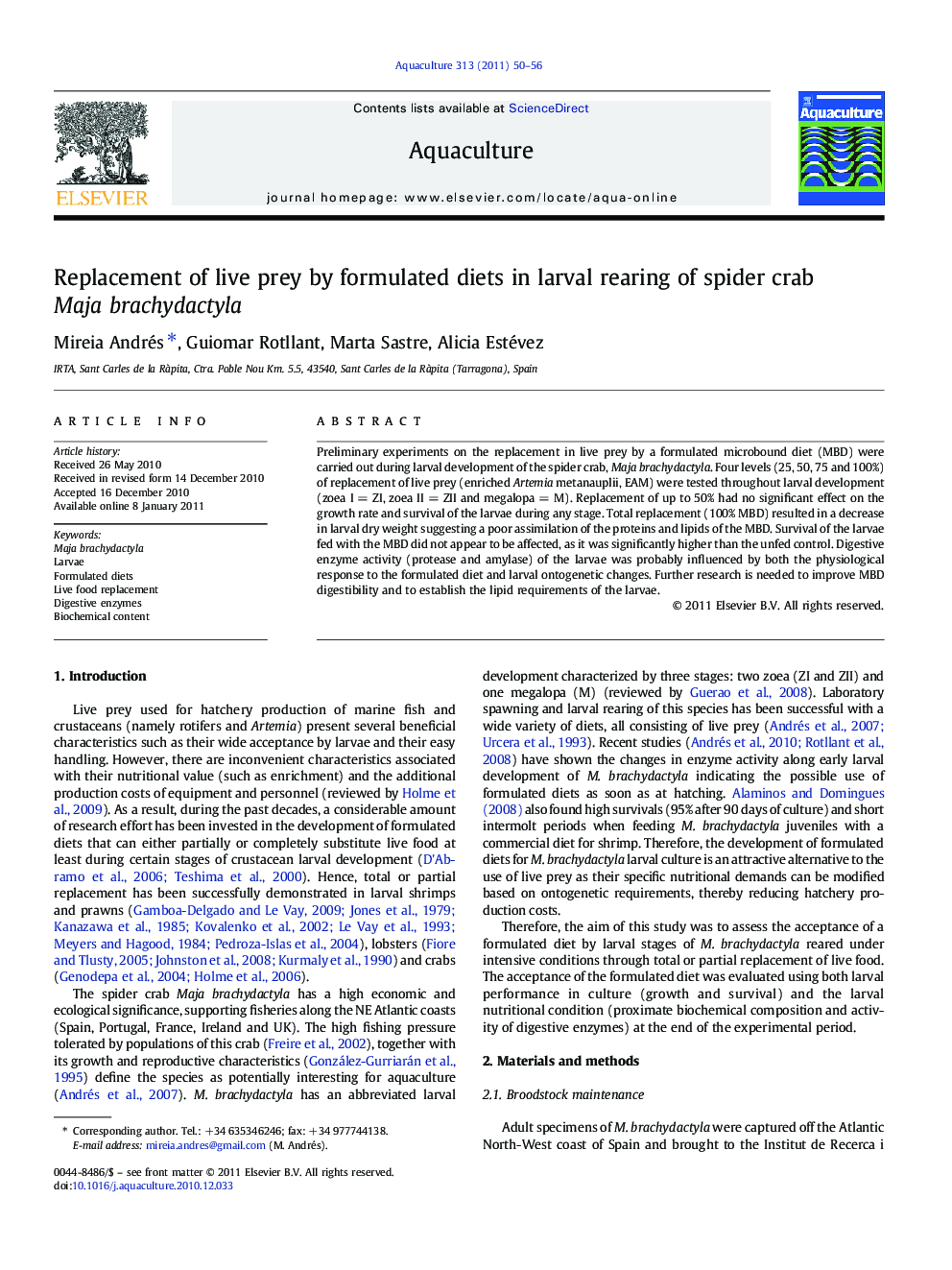| Article ID | Journal | Published Year | Pages | File Type |
|---|---|---|---|---|
| 2423319 | Aquaculture | 2011 | 7 Pages |
Preliminary experiments on the replacement in live prey by a formulated microbound diet (MBD) were carried out during larval development of the spider crab, Maja brachydactyla. Four levels (25, 50, 75 and 100%) of replacement of live prey (enriched Artemia metanauplii, EAM) were tested throughout larval development (zoea I = ZI, zoea II = ZII and megalopa = M). Replacement of up to 50% had no significant effect on the growth rate and survival of the larvae during any stage. Total replacement (100% MBD) resulted in a decrease in larval dry weight suggesting a poor assimilation of the proteins and lipids of the MBD. Survival of the larvae fed with the MBD did not appear to be affected, as it was significantly higher than the unfed control. Digestive enzyme activity (protease and amylase) of the larvae was probably influenced by both the physiological response to the formulated diet and larval ontogenetic changes. Further research is needed to improve MBD digestibility and to establish the lipid requirements of the larvae.
